Understanding Pest Control in Florida: Exterminators' Role
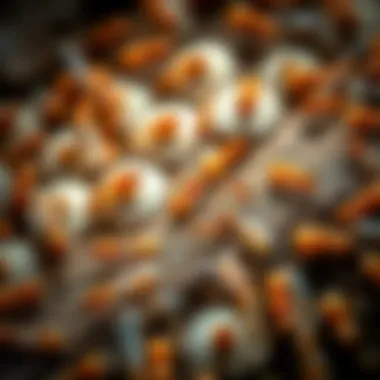
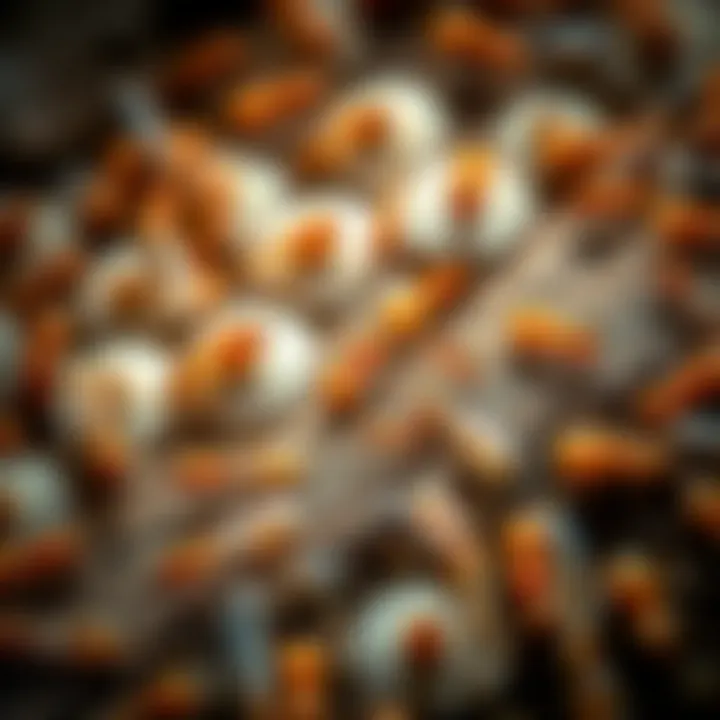
Intro
Pests are not just an occasional irritant; in Florida, they pose significant challenges for homeowners and gardeners. With a warm and humid climate, the Sunshine State is a haven for various pests that can wreak havoc on both properties and gardens. Understanding the nature of these pests and the pivotal role played by exterminators is crucial for effective pest management. This article provides a comprehensive guide to navigating the pest control landscape, emphasizing integrated pest management and sustainable practices that balance efficacy with environmental stewardship. As we delve deeper, we'll cover everything from pest identification and prevention techniques to eco-friendly solutions.
Understanding Pests
Definition of Pests
A pest can be defined as any organism that adversely affects human activities. In Florida, this includes insects, rodents, and even certain plants. Common culprits such as mosquitoes, termites, and roaches are not merely nuisances; they can cause structural damage, transmit diseases, and undermine the health of your garden. Identifying these pests promptly can save time, money, and peace of mind.
Importance of Pest Identification
Correctly identifying a pest is the first step in effective control. Each pest has its own habits, life cycles, and vulnerabilities. For example, knowing the difference between a termite and a carpenter ant can significantly impact your approach to treatment. By recognizing specific traits of common Florida pests, homeowners can address infestations more effectively.
Prevention Techniques
Home and Garden Preventative Measures
Prevention is always preferable to eradication. Homeowners should take proactive steps to deter pests before they establish residence. Simple measures include:
- Sealing cracks and crevices in walls and windows.
- Maintaining clean outdoor spaces, free from debris and standing water.
- Storing food in airtight containers to minimize attractants.
- Regularly inspecting plants for signs of infestations.
Seasonal Prevention Tips
Florida’s unique climate results in seasonal pest patterns. During the warmer months, mosquitoes thrive, while the wet season often sees an uptick in ant populations. Some best practices include:
- Applying protective insecticides before pest populations grow.
- Conducting routine inspections, especially after heavy rain.
- Using repellents and natural deterrents around outdoor living areas.
Eco-Friendly Pest Control Solutions
Overview of Sustainable Practices
With increasing awareness of environmental issues, many pest control professionals are adopting eco-friendly methods. Integrated Pest Management (IPM) combines biological control, habitat manipulation, and, as a last resort, chemical methods to manage pest populations responsibly. This approach not only reduces chemical exposure but also targets pest behavior and life cycles.
Natural Remedies and Their Effectiveness
Home remedies can also play a significant role in pest control. For example, diatomaceous earth can help control crawlers, while essential oils like peppermint and citronella serve as natural repellents. However, it's essential to understand that while these methods may be effective for minor issues, severe infestations might still require professional interventions.
"Pest management should not only focus on extermination but also explore preventative and sustainable practices."
In summary, understanding pests and the steps taken to manage them is vital for the well-being of every Floridian home. Choice of methods depends on the specific challenges faced, and by integrating the practices discussed, everyone can contribute to a more pest-free environment.
Prologue to Pest Control in Florida
Pest control is crucial for both the well-being of homes and the health of the Floridian landscape. In a state where balmy weather supports an array of insects and critters, homeowners need to be proactive in pest management. The importance of this topic stems not just from the nuisances pests present, but also from the potential damage these intruders can cause. Vermin can compromise structural integrity, tarnish property values, and even pose health risks.
Florida's warm climate breeds an almost relentless push of pest activity. The state becomes a popular haven for critters that can wreak havoc on gardens, homes, and even health. As a homeowner, understanding the pest control landscape can help you tackle these issues head-on, before they can spiral out of control. Whether you're dealing with stubborn ants or the ever-wary raccoon, the role of professional exterminators cannot be overstated.
The Landscape of Florida's Pests
Florida’s ecosystem is a double-edged sword. Sure, the lush landscapes provide a fantastic aesthetic, but they also attract a cornucopia of pests. From termites, which gnaw away at wooden structures, to cockroaches that scurry in the shadows, the variety can be overwhelming. Homeowners must arm themselves with knowledge to distinguish between harmless insects and those that can cause real harm.
- Termites: Known as the silent destroyers, they can cause thousands of dollars in damage before you even realize there’s an issue.
- Ants: Be it fire ants or carpenter ants, they can invade in armies, with some species being quite aggressive.
- Rodents: Rats and mice are not just a sanitary concern but can also lead to costly repairs if left unchecked.
Understanding these common pests allows the homeowner to better evaluate their own properties. Are there signs of wear on your porch? What about seeing more ants than usual? These indicators lead you to timely solutions.
Why Exterminators Are Essential
So, one might wonder why exterminators are such a linchpin in pest management. It's simple: they offer expertise that goes beyond just spraying some chemical solutions. Licensed pest control professionals are equipped with knowledge and methods tailored specifically for Florida’s unique pest issues.
Exterminators also carry out detailed inspections that are essential in pinpointing the source and scale of a pest problem. It’s often not enough to simply get rid of the visible pests. You need to ensure they don’t return, and exterminators implement preventive strategies that go a long way in maintaining a pest-free environment.
Hiring an exterminator isn’t just about getting rid of current pests. It’s about setting up your home for long-term pest management and sustainability.
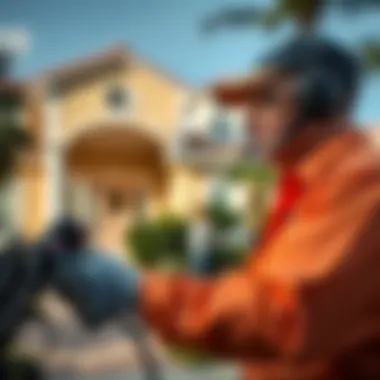

Through the use of integrated pest management approaches, eco-friendly products, and ongoing maintenance, exterminators play a pivotal role in setting up barriers against future infestations. In a state filled with opportunities for pest incursions, having a knowledgeable partner makes all the difference.
Types of Common Pests in Florida
In a state as vibrant and diverse as Florida, various pests dance through the ecosystems, making the role of exterminators increasingly crucial. Understanding the types of common pests found here not only aids in identifying potential threats but also serves as a foundation for effective pest control strategies. The warmth and humidity of the Florida climate create a breeding ground for diverse insects, rodents, and wildlife. Thus, knowing what pests lurk around, and how they interact with our homes and gardens, can significantly empower homeowners.
Many Floridian households face unique challenges based on their geographic location. The Atlantic Ocean to the east and the Gulf of Mexico to the west contribute to moderate temperatures and abundant rainfall, attracting pests year-round. With this understanding, homeowners can take precautionary measures, reducing the likelihood of infestations while enhancing their overall quality of life.
Insects
Insects are arguably the most prevalent pests in Florida, often turning a serene day into a troublesome one. With their capacity to reproduce rapidly and adapt to various environments, they pose significant threats to homes and gardens alike.
Termites
Termites are notorious for causing devastating damage to wooden structures, hidden away until it’s too late. In Florida, the subtropical climate provides ideal conditions for these pests to thrive. Their ability to consume wood, paper, and other cellulose materials makes them a significant concern for homeowners.
One key characteristic of termites is their social structure; they live in colonies, which can contain thousands to millions of individuals. This means if one colony establishes itself in a home, it can lead to a quick eruption of damages, potentially costing thousands of dollars in repair work.
A unique feature of termites is their tunneling behavior, allowing them to navigate throughout wooden beams without immediate detection. Homeowners may not notice until they see sagging structures or a major infestation has taken root.
Ants
Ants, perhaps less intimidating than termites, can still wreak havoc in Florida homes. The tropical environment supports a variety of ant species, with the fire ant being one of the most notable. Fire ants can cause painful stings and their colonies are persistent and aggressive.
The social nature of ants is both a benefit and a disadvantage. While their colonies serve as efficient laborers, foraging for food and maintaining their nests, they can create nests in unwanted areas, such as under patios or inside walls. Their unique ability to form rafts and float in water can help them navigate flood situations, which is particularly relevant during Florida's heavy rains.
Cockroaches
When talking about uninvited guests, cockroaches often top the list. Florida’s climate sustains several species of cockroaches, including the American cockroach and the German cockroach, both of which can be quite resilient. Known for their swift movements and nocturnal habits, they can spread diseases and allergens, making them a serious concern for household health.
A notable characteristic is their ability to survive harsh conditions, often appearing seemingly out of nowhere. This adaptability can sometimes work to their advantage, making these pests difficult to control once they establish themselves in a home.
Rodents
Rodents are another common problem in Florida. These critters, which include rats and mice, tend to invade homes looking for food and shelter, leading to significant issues like contamination and property damage.
Rats
Rats, notably the Norway and roof rats, are well adapted to urban environments and can be a constant thorn in the side of Florida residents. They’re known to carry potential diseases like leptospirosis and hantavirus, making their elimination a priority for pest control experts.
Being highly intelligent and resourceful, rats can squeeze through tiny openings and climb up walls or trees to access food sources and nesting areas. Their ability to reproduce quickly means a small problem can escalate into a full-blown infestation in no time.
Mice
Mice may seem like less of a problem, but they can be equally as damaging as rats. In Florida, house mice are common, easily finding entry points into homes. Their characteristic small size allows them to exploit openings that would typically go unnoticed. Like rats, they can multiply rapidly, making early detection critical for managing their presence.
Their unique tendency to gnaw on wires, insulation, and anything that helps them build nests can lead to fire hazards and other significant damages.
Wildlife
Aside from insects and rodents, Florida is home to wildlife that can encroach upon human habitats, further complicating pest control efforts.
Raccoons
Raccoons are one of the more mischievous wildlife species, often rummaging through garbage and entering attics if given the chance. They’re clever and agile, easily managing to open containers and doors, which makes them a continuing nuisance for homeowners. Their sharp claws and adaptability allow them to navigate diverse environments.
They can also carry diseases like rabies and raccoon roundworm, creating health risks for pets and humans alike. Their presence often signifies a larger issue that needs attention, as they can cause structural damage while looking for food.
Opossums
Opossums, while less commonly complained about, can also become intruders in Florida homes. They’re generally non-aggressive and are often known for their ability to feign death when threatened. This unique trait can confuse residents about their presence.
Alternatively, their dietary habits help control pest populations, as they consume insects and small rodents. Nevertheless, their habit of nesting in attics or under decks can lead to unwanted challenges when they start to breed.
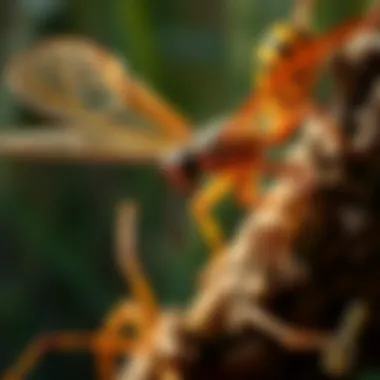
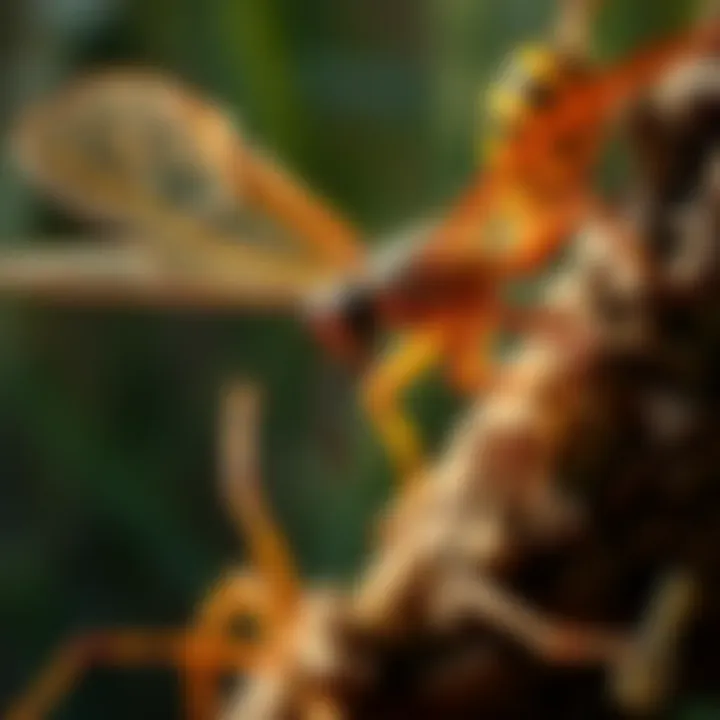
Understanding these pests and their behaviors can significantly aid in formulating effective management strategies. Homeowners should stay informed and proactive, recognizing the threats posed by these species and the importance of timely intervention from exterminators.
Understanding Exterminator Services
Understanding the range of services provided by exterminators is a cornerstone of effective pest management in Florida. With the unique climate and diverse ecosystems in the state, homeowners face numerous pest challenges. Exterminators are equipped with specialized knowledge and tools to tackle these issues head-on, assisting in pest prevention and population control. Whether it's ants marching across the kitchen floor or more significant threats like termite infestations, these professionals employ techniques tailored to the specific needs of the environment. Their expertise not only ensures a pest-free home but also safeguards public health and property interests.
Inspection Process
The first step in effective pest control is a comprehensive inspection. Exterminators often start by examining the property, looking for signs of existing infestations, potential entry points, and favorable conditions for pests. This includes checking places that homeowners might overlook, like attics, basements, and concealed corners. During the inspection, they assess the severity of the pest issue and may even identify additional problems that could arise if left unchecked.
A thorough inspection not only focuses on identifying pest presence but also evaluates environmental factors that may encourage pest activity. Information gathered during this phase informs the creation of an effective treatment plan tailored to the specific property and its needs.
Targeted Treatments
After the inspection, the next step involves implementing targeted treatments. Exterminators employ various strategies to ensure pests are controlled effectively.
Chemical Solutions
Chemical solutions, commonly known as pesticides, are frequently utilized in pest management. These treatments are effective for eliminating infestations swiftly. What sets chemical solutions apart is their potency; they target the nervous systems of insects or rodents, facilitating a rapid reduction in pest populations. Despite their effectiveness, there are important considerations to note.
While these solutions can be beneficial, they often raise concerns regarding safety for pets and children, alongside environmental impact. Choosing the right chemical solution requires care, as some options are formulated to be less harmful to humans and the ecosystem. To strike a balance between performance and safety, exterminators tend to prefer solutions that minimize negative effects while maximizing extermination efficiency.
"Always consult with a professional about the best chemical choices for your needs."
Physical Barriers
Physical barriers serve as a natural method of pest control. This might include sealing cracks in walls or installing screens in windows—preventing pests from entering structures. Physical barriers are often lauded for their non-toxic nature, which keeps homes safe for both inhabitants and pets. They can provide long-term protection when installed properly, striking a chord between effectiveness and safety.
However, physical barriers require diligence. Proper maintenance is crucial to ensure their effectiveness, as even small gaps can allow pests to infiltrate again. This means regular checks and updates are necessary, which can sometimes be overlooked by homeowners once the first install is complete.
Traps
Trapping is another method employed by exterminators and, depending on the pest, can be a humane solution. Traps can catch rodents as well as insects, functioning both indoors and outdoors. What makes traps particularly appealing is their visibility: homeowners can see when a pest has been captured, reassuring them that their method is working.
However, traps can also have drawbacks. They may not always work for larger infestations where multiple traps are needed, which can lead to visibility and management issues. Moreover, it's essential to choose the right type of trap according to the pest involved. It might necessitate consulting with a professional to determine the most effective approach.
Ongoing Maintenance
Ongoing maintenance in pest control cannot be understated. Typically, successful pest management doesn’t end with one treatment. Regular follow-ups ensure that pests don’t stage a comeback. Exterminators often offer reassessment and continuous monitoring services to adapt their strategies based on evolving pest dynamics.
Homeowners also play a crucial role in ongoing maintenance. By following guidelines provided by exterminators, such as sealing entry points and managing clutter, they can reinforce pest prevention efforts. Together, the synergy between exterminators and vigilant homeowners leads to more effective long-term pest management.
This dual approach creates an environment less conducive to infestations, making it essential in Florida’s unique landscape.
Regulations and Standards for Exterminators in Florida
Navigating the pest control realm in Florida isn't simply a matter of dealing with creepy crawlies; it’s also about adhering to regulations that ensure both effectiveness and safety. Establishing a solid framework of regulations helps to protect the public, the environment, and the professionals who tackle pest issues. The relevance of these regulations transcends mere compliance; they are integral for instilling confidence among homeowners and assuring them that the services they are receiving meet high standards.
Licensing Requirements
In Florida, exterminators must be licensed to carry out pest control operations. This licensing serves as a safeguard for consumers, ensuring that the exterminator has undergone the necessary training and education. The Florida Department of Agriculture and Consumer Services (FDACS) oversees the licensing process.
To become a licensed pest control operator, individuals typically need to fulfill several requirements:
- Educational Background: Applicants usually need to have related coursework or a high school diploma.
- Experience: On-the-job experience is crucial. Most individuals need to work under a licensed professional to accumulate sufficient hours.
- Pass Examinations: Individuals must pass state examinations which evaluate their knowledge of laws, regulations, and pest control practices.
- Background Checks: A clean criminal background often is a part of the scrutiny to ensure the public's safety.
Once licensed, professionals must also stay up to date with continuing education requirements to keep their knowledge sharp and maintain their licenses.
Safety Protocols
Safety is paramount when it comes to handling pest control products, most of which can be harmful if mismanaged. Exterminators in Florida are required to follow strict safety protocols that govern how they conduct their work. These protocols not only protect the professionals themselves but also the clients, pets, and environment. Here are some essential safety measures that licensed exterminators must adhere to:
- Personal Protective Equipment (PPE): Exterminators must wear appropriate PPE, including gloves, goggles, and masks, to minimize exposure to chemicals.
- Label Compliance: All pest control products come with labels that detail application methods and recommended dosages. Adhering to these labels is not just a best practice; it's a legal necessity.
- Usage of Approved Chemicals: Only EPA-registered products may be used in pest control. This ensures that the chemicals have undergone thorough testing for safety and effectiveness.
- Proper Disposal of Materials: Exterminators must follow regulations for the safe disposal of any chemicals or hazardous waste to mitigate environmental impact.


As a homeowner, understanding these standards offers peace of mind. You’re not just hiring someone to get rid of pests; you’re entrusting a professional who complies with stringent regulations designed to protect your home, your family, and the surrounding ecosystem.
"Regulations ensure that our pest control methods do not merely exterminate pests but do so with an eye toward long-term safety and sustainability."
By choosing a licensed and compliant exterminator, you're investing in a safer, healthier living environment.
Sustainable Pest Management Practices
Understanding sustainable pest management practices suggests a significant step forward in addressing pest issues without compromising environmental health. It is a holistic approach to managing pest populations that aims to minimize risks to human health and the environment. The key principles revolve around preventing pest problems before they arise and utilizing control methods that are less harmful to people, pets, and beneficial insects.
Integrated Pest Management (IPM)
Integrated Pest Management, often referred to as IPM, is a highly effective strategy in sustainable pest control. It involves a combination of techniques that consider pests’ life cycles, their natural enemies, and environmental conditions. By evaluating the unique circumstances surrounding each pest problem, exterminators can tailor their approach to address the issue effectively. This might include unlocking some lesser-known tactics like:
- Biological control: Utilizing natural predators or parasites that target specific pests. For instance, ladybugs can help manage aphid populations.
- Cultural practices: Making changes to your environment that inhibit pest growth, like rotating crops in a vegetable garden to prevent infestation.
- Mechanical control: Setting barriers or traps, which can be particularly useful for smaller pests.
IPM emphasizes monitoring and long-term prevention rather than relying solely on chemicals, which can have unintended consequences. It's about finding the best solution without breaking the bank or hurting the planet.
Eco-Friendly Treatment Options
When traditional methods fall short, eco-friendly treatments provide alternatives that are less likely to negatively impact the environment. These approaches prioritize the safety of non-target species and focus on safe substances that decompose naturally. Some more commonly recommended eco-friendly options include:
- Essential Oils: Many natural oils like peppermint or tea tree oils possess insect-repelling properties. They are favored not only for their efficiency but also for their pleasant scents.
- Diatomaceous Earth: A powder made from fossilized algae that can dehydrate and kill soft-bodied pests. Importantly, it’s nontoxic for larger animals.
- Neem Oil: Extracted from the seeds of the neem tree, it disrupts the life cycle of many insects while being safe for beneficial bugs when used correctly.
For homeowners wanting to reduce their carbon footprint, this option not only facilitates pest management but also actively promotes a greener future.
Preventive Strategies for Homeowners
Homeowners can play a critical role in pest management through effective preventive strategies. By focusing on maintaining their properties, they can reduce the likelihood of infestations. Some strategies to consider include:
- Regular Maintenance: Sealing cracks in windows and doors, covering vents, and ensuring drains are clear can deter pests from making their residence in your home.
- Landscaping Tips: Keeping bushes and trees trimmed back and away from the house can limit pest access. Additionally, planting pest-resistant plants can help create a more hospitable environment.
- Proper Waste Management: Ensuring all trash is securely stored in containers and not leaving pet food outside can eliminate attractants for many pests.
These steps, when implemented consistently, lead to a proactive stance on pest management, significantly reducing the need for extermination services over time.
The emphasis on sustainable practices in pest control illustrates a growing awareness of our environmental responsibilities.
In sum, sustainable pest management is more than just eliminating a nuisance. It's about fostering a healthier relationship with our surroundings while keeping our homes safe. Following integrated pest management strategies, opting for eco-friendly treatments, and employing prevention techniques are crucial steps for every homeowner concerned about both pests and the planet.
Choosing the Right Exterminator
Selecting the right exterminator goes a long way in dealing with pest control challenges, particularly in a state like Florida, where the diverse climate breeds a wide array of pests. This section emphasizes the need to approach this choice with diligence and foresight. The right expert not only removes unwanted critters but also implements strategies that are environmentally sound and less intrusive to your daily life. Making a hasty decision can leave you with ineffective solutions or worse, a larger pest problem down the line.
Evaluating Credentials and Experience
When assessing potential exterminators, one of the first steps is verifying their credentials. In Florida, pest control professionals must possess a license issued by the Florida Department of Agriculture and Consumer Services. Checking that license is paramount. Each extermination technician should display clear evidence of ongoing training and certifications. Not all pest problems are created equal, and experience plays a pivotal role in successful pest management.
It's wise to inquire about the company’s history; how long have they been in the field? What kinds of pests do they specialize in? Those with a solid reputation typically have robust experience in knocking out common nuisances like termites and roaches, as well as navigating challenges presented by wildlife. A seasoned professional not only understands effective methods but also appreciates the nuances of local ecosystems, which is invaluable when crafting a treatment plan.
Reading Reviews and Testimonials
In the age of technology, personal recommendations can go a long way, but don't underestimate the power of online reviews. Before settling on an exterminator, spend some time evaluating what previous clients have said. Positive reviews can give you insight into a company's commitment to customer satisfaction, punctuality, and effectiveness. Look out for patterns in reviews. If multiple clients mention that the exterminator is reliable and thorough, it's likely a good sign.
Alternatively, watch for red flags in reviews. If you see recurring mentions of similar issues—like unprofessional conduct or failure to solve pest problems—it’s worth reconsidering your choice. Many exterminators maintain social media pages or websites where testimonials can be found. You could also check community groups on Facebook or platforms like Reddit, where locals discuss their experiences with local services. Remember, a good exterminator should have nothing to hide and should be willing to showcase their success stories.
Always take the time to visit your target exterminator’s website for more information about their services and credentials. It might also feature safety guidelines, treatment options, and unique selling points that might sway your decision.
Finale
The topic of pest control is not just a matter of convenience but a vital consideration for anyone living in Florida. As we have explored, the challenges posed by local pests require a comprehensive approach that includes not only immediate solutions but also long-term strategies for sustaining a pest-free environment.
The Future of Pest Control in Florida
Looking ahead, the landscape of pest control in Florida is set to evolve further, driven by advancements in technology and an increasing emphasis on sustainability. This evolution will likely center on several key areas:
- Smart Technology: We can expect an integration of smart technology into pest control practices. This could include sensors that detect pest activity in real-time, allowing for timely and targeted interventions.
- Sustainable Practices: The trend towards eco-friendly alternatives will continue to gain traction. More homeowners and exterminators are turning to organic solutions and practices that minimize the impact on the environment.
- Education and Awareness: As awareness of pest-related issues grows, education will play a crucial role. Homeowners will be better informed about preventative measures and the importance of integrated pest management.
"The future will demand that pest control professionals adapt to ever-changing environmental conditions while prioritizing ecological balance."
Moreover, regulations may tighten as the state enforces stricter guidelines on pesticide use, nudging exterminators towards safer options. This changing landscape underscores the necessity for those involved in pest control to stay informed and adaptable, ensuring they deliver effective solutions aligned with modern standards and expectations.
In summary, the importance of pest control in Florida will only increase. Homeowners must recognize the value of partnering with skilled exterminators who can navigate the unique challenges posed by the state’s vibrant ecosystems. With the right knowledge and practices, achieving a pest-free home is not only possible but sustainable.



